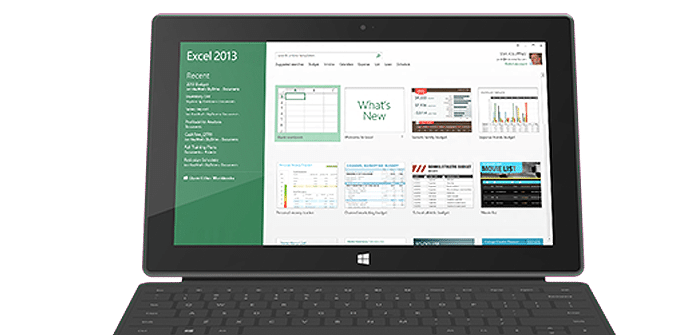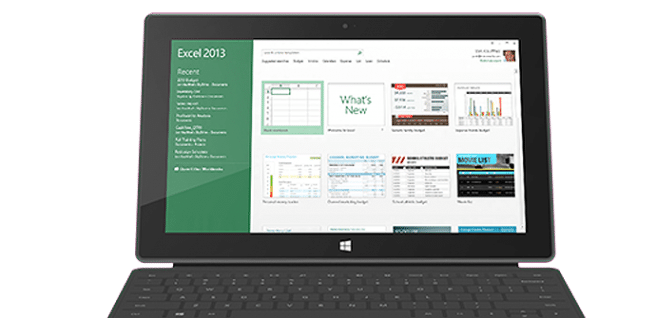
When we look at how the weights are distributed in the current tablet market, we find that the two operating systems that dominate are iOS and Android. This is a no-brainer, but it is interesting to see that the profile they offer is mixed, they do not seem to have a clear specialization. If we had to opt for one, we would say entertainment, but it would be oversimplifying. Windows for its part has decided on productivity and Microsoft emphasizes this in its advertisements.
In this article we want to reflect on why productive tablets are not having such commercial success that other models are having.
Ideas associated with the tablet format
If we asked a good number of tablet owners why they bought their tablets we would get a very high variety of responses, but we are sure that the entertainment and internet browsing and social networks would be one of the most compelling reasons. In short, they are not differentiating elements from other formats. And here is the key, looking for something in the format: the touch control and mobility.

In a way, we associate that in a tablet we will not do anything important. We will answer an email or even quickly edit a working document on occasion. But mainly we will look at our Facebook, play a game, watch a movie, and maybe read a digital book on the train. There are some exceptions in Android, like the Creative Suite of the Galaxy Note and its stylus, but they are very specific for one type of work.
When we think of work, we want a team in which we feel comfortable. We know that we will have a good time and, therefore, it is better that we are well seated. We want a good keyboard and a big screen. This is a more traditional PC.
Opportunities in a changing scenario
They are associations of ideas that respond more to the reality of day to day. Well it is true that every time it is more common work in mobility, the invasion of the work sphere into personal life and that every day that passes we are more used to operating on small screens. It is this changing scenario that makes it possible for consumers to take on this format.
This changing scenario is what has made it possible for us to make the move to the laptop. The desktops are for offices and some professionals who need real computer beasts at home and perhaps Gamers More demanding. But I honestly don't know of anyone who in the last two years has chosen anything other than a laptop as a personal computer for productivity.
Office automation and mobility
One of Microsoft's big bets for tablets with Windows RT is to make the Office suite free. Incomprehensibly, in models with full Windows 8.1 we will have to pay for the office automation package despite the fact that these computers cost a Congo for the most part. We will find a more accessible price in the equipment with Atom chips, but these clearly will not run with solvency high productivity programs like some design or business management.

The power access Word, Excel and Power Point from a more portable computer it could be a huge incentive for many users. However, this option should always be seen accompanied by a keyboard that allows us to be productive. In other words, what use is the best text manager to me if I am going to write at a ridiculous pace?
Microsoft has come up with a good solution with its Touch Cover and Type Cover for the Surface, which adds almost no bulk to the whole. However, not all manufacturers have been so fine with their solutions.
BYOD, a determining factor
Many of the aspects that would favor the purchase of productive equipment have to do with the new work culture. Values such as constant availability or the offshoring operation, they empower us to need teams that are as competent as possible for the job.
Until now, it was our companies that provided us with our work tool. We would arrive at the office and there we had our computer. Then came the mobile to be always reachable. Then came the smartphone that allowed us to solve some issues and send an email and finally we have the tablets that allow us to do all that and some other things.
We recently showed you a report that studied the adoption of BYOD culture (Bring Your Own Device) that encourages you to use your personal device for work and take it to the office. Recently you we showed a report who studied this phenomenon on a global level. Asia was the area where this phenomenon was most prevalent, precisely where the extreme work culture is strongest. It is no coincidence that this is where large screens are most appreciated and mixed formats have been most successful. In Western Europe and the United States the numbers were still low but growing.
Therefore, it is logical to think that those people who live in these circumstances will choose a device with productivity benefits over a team more geared towards entertainment.
Necessary but less attractive
It is clear that what one format and another promise is not comparable. An invitation to play and entertain is not the same as an invitation to work. Perhaps that is why the future of Windows tablets is to be able to bring enough entertainment to be a total solution.
The current scenario in which companies are mainly committed to workaholics it will be more necessary for your appendix, the device, to be as productive as possible.
When it comes to investing in a tablet, we still think more about the pleasure it will provide us but we will always have that voice of conscience that tells us that since we are going to leave a dough, at least that it serves us for something productive.
If you want to find out which type of tablet is best for you, you can do this multiple choice questionnaire that we did using the formula of the forms type Know yourself of the Cosmopolitan. It is your decision to what extent the results are extrapolated.